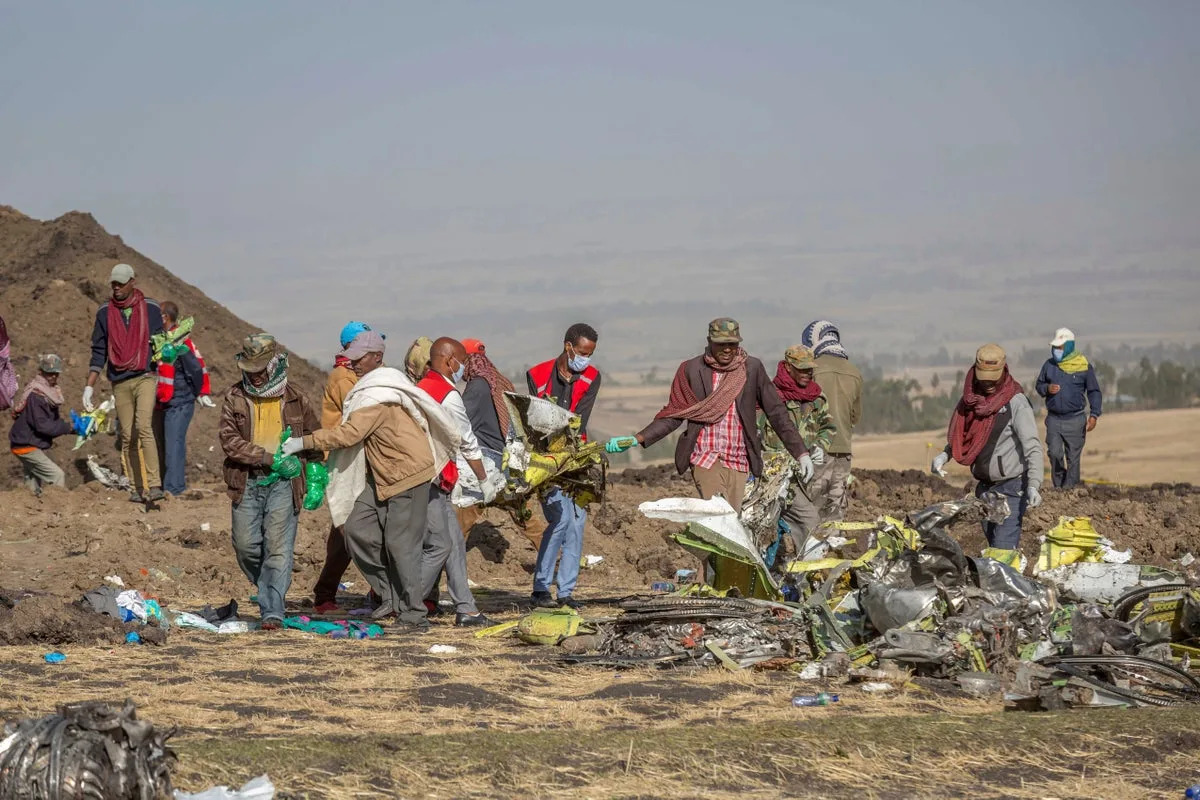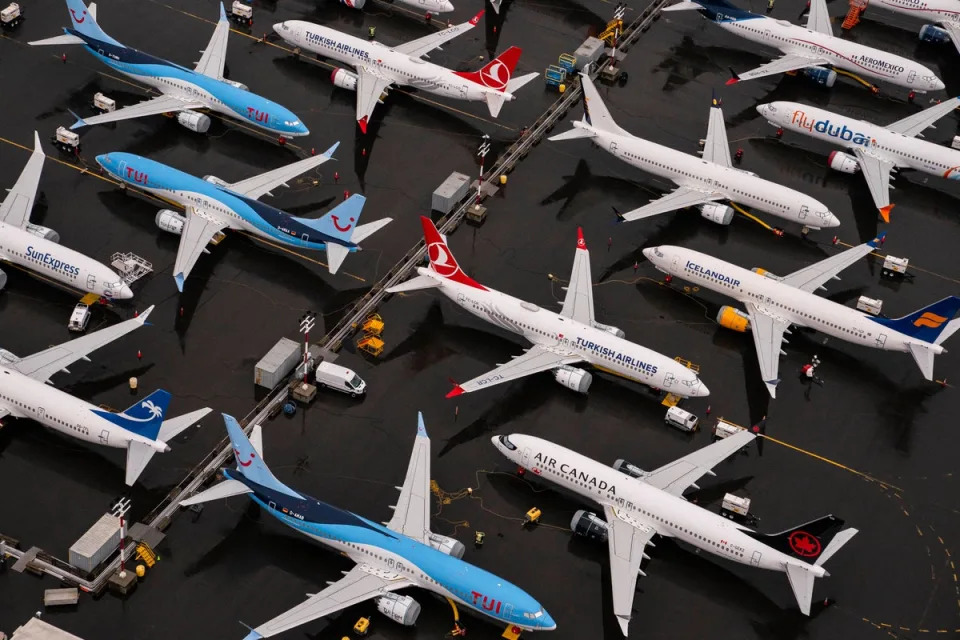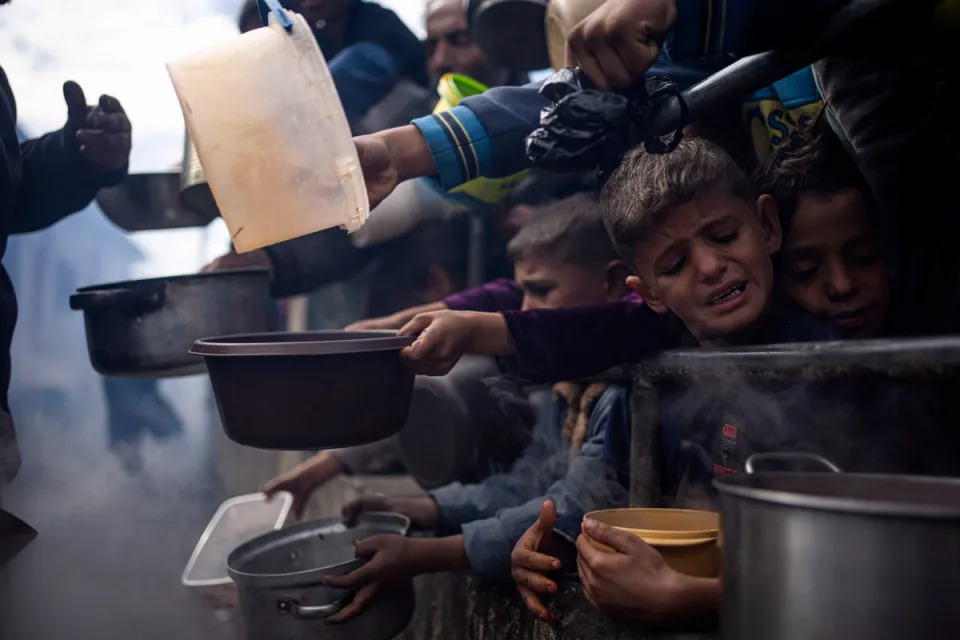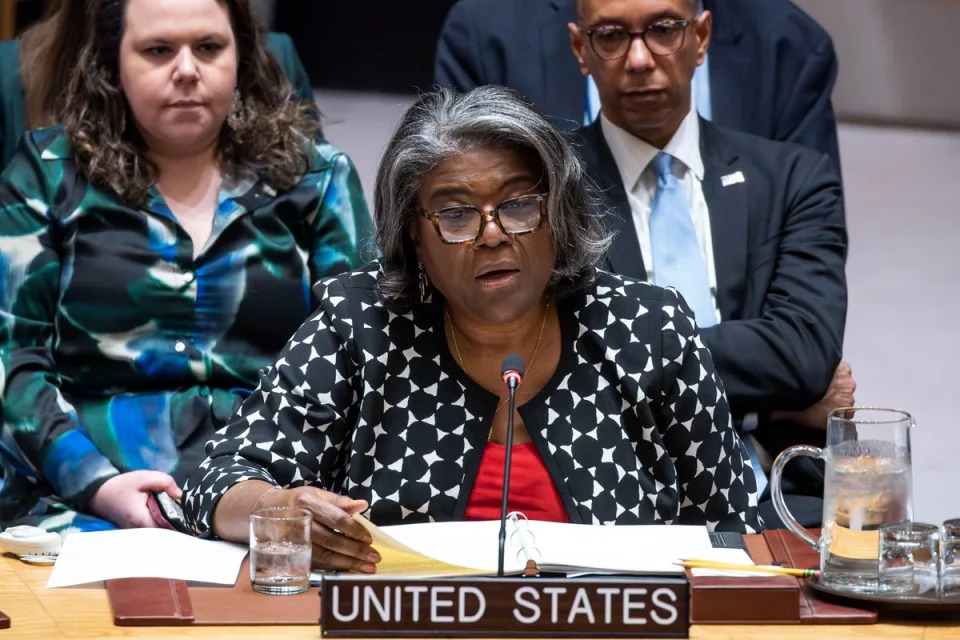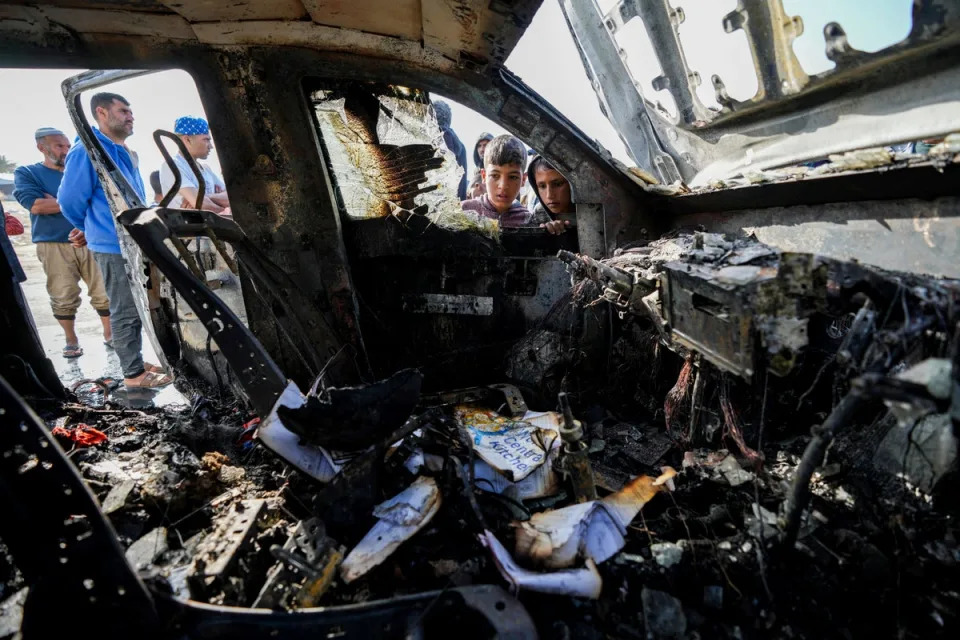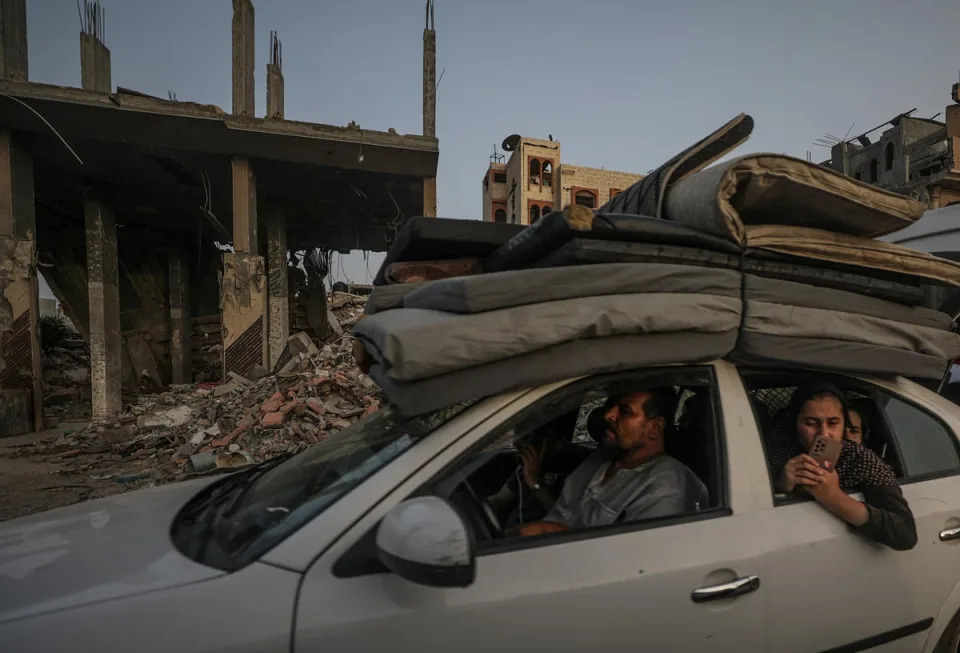Grace Kay
Wed, May 15, 2024
Tesla is spending money on ads to promote Elon Musk's $55 billion pay plan.
The company aims to reapprove Musk's compensation package after it was voided by a judge.
Whether the package is reinstated will be voted on by shareholders on June 13.
Tesla is going all in on its efforts to push through approval of Elon Musk's $55 billion pay package.
The automaker, which has traditionally avoided advertising, has even spent some money on ads calling for Tesla investors to vote in favor of the compensation plan. Tesla showed in a filing with the Securities and Exchange Commission it had paid for some ads on Google, as well as through Musk's social media site X.
"You deserve the final say on matters affecting your investment in Tesla," one ad on X reads. "Vote FOR the protection of stockholder rights and to preserve present and future value creation by supporting Tesla proposals 3 and 4."

A screenshot of some of the paid ads Tesla ran in support of Musk's pay package proposal.SEC
The company aims to pass two separate proposals, one moving its state of incorporation from Delaware to Texas and another reapproving Musk's pay, which was struck down by a Delaware judge earlier this year. In January, when the pay plan was voided, Court of Chancery Judge Kathleen St. J. McCormick said that Musk had undue influence over the package due to his close ties to several board members and said Musk's influence over Tesla's board resulted in an "unfair price."
A spokesperson for Tesla did not immediately respond to a request for comment.
Musk does not receive a salary from Tesla and his pay package centered on a series of goalposts around the carmaker's financial growth. The compensation plan was initially set in place in 2018. Specifically, it involves a 10-year grant of 12 tranches of stock options which are vested when Tesla hits specific targets. When each milestone is passed, Musk gets stock equal to 1% of outstanding shares at the time of the grant. Tesla has accomplished all of the 12 targets as of 2023, according to the carmaker.
The package was valued at around $55 billion at the time it was struck down by the judge.
The ad spending is one of several methods Tesla is using to attempt to push shareholders to vote in favor of the proposal. On Wednesday, The Wall Street Journal reported that Tesla's board chair, Robyn Denholm, plans to spend the weeks leading up to the shareholder vote on June 13 traveling in order to drum up support for the initiative. Separately, Bloomberg reported on Wednesday that Tesla had brought on a strategic advisor to promote the agenda.
Earlier in May, Denholm even sat down for a video promoting the pay plan.
"We don't believe one judge's opinion should void the will of millions of votes cast by all of the owners of the company," the Tesla chair said in the video. "So once again, we're asking you to make your voices heard by voting for the ratification of the 2018 performance award."
Tesla's Finally Buying Ads...To Get Elon Musk His $55 Billion Pay Day
Owen Bellwood
Tue, May 14, 2024

Photo: Apu Gomes (Getty Images)
Good morning! It’s Tuesday, May 14, 2024, and this is The Morning Shift, your daily roundup of the top automotive headlines from around the world, in one place. Here are the important stories you need to know.
1st Gear: Tesla Is Using Ad Money To Secure Musk’s $55 Billion Pay Pack
For some reason, Elon Musk decided that his work at Tesla was worth an eye-watering $55 billion in a move that would see him become one of the best-paid executives across the auto industry. However, the pay pack was blocked by the courts last year and since then Musk has been doing everything he can to try and get it approved, including using Tesla’s advertising budget to promote it.
Tesla has reportedly funneled funding that should be used to promote its cars to buy adverts that aim to encourage shareholders to vote in favor of Musk’s pay packet, reports Electrek. The adverts have so far run on platforms including X, which Musk also owns, and promote moving Tesla’s HQ to Texas and approving the $55 billion pay. As Electrek reports:
In a new filing with the SEC, Tesla confirmed that it is now buying ad spaces to encourage shareholders to vote for these items.
Tesla has to file with the SEC all the “communications” it has with shareholders regarding the vote and this time, the communications are listed as “sponsored” on Google – meaning that Tesla bought Google ads for it.
The automaker even spent money on Elon Musk’s pockets by buying ads on X with the post listed as “promoted”.
Shareholders, who have until June to cast their votes on the issues, could have seen the adverts running online. Each one encourages them to vote in favor of moving Tesla’s state of incorporation out of Delaware and into Texas, which was a move Musk promised after Delaware judges blocked the $55 billion pay. The ads also ask shareholders to vote in favor of having the final say on any compensation offered to Musk.
The spending on such adverts would be suspicious at any time, but it also comes amid falling profits and massive job cuts across the EV maker. Musk has pledged to cut roughly 10 percent of Tesla’s workforce, including across its Supercharger team, workers at its California base and even its interns.
2nd Gear: Uber And Lyft Are In Court Over Driver Benefits
There’s no denying it, rideshare services like Uber and Lyft have changed the way we get around town, but despite thousands of drivers across America operating rides for apps like this, the companies behind them still refuse to treat them as regular employees.
Now, the state of Massachusetts is taking Uber and Lyft to court over its treatment of people driving for the apps, reports Reuters. The lawsuit urges them to treat drivers as it treats its full-time employees, offering proper pay and benefits. As Reuters explains:
Massachusetts Attorney General Andrea Joy Campbell, a Democrat, is asking a judge to conclude that drivers for Uber and Lyft are employees under state law and therefore entitled to benefits such as a minimum wage, overtime and earned sick time.
Studies have shown that using contractors can cost companies as much as 30% less than employees.
Assistant Attorney General Douglas Martland in his opening statement said the companies’ algorithms, pricing policies and operating standards gave them a level of control over their drivers that belied any claim that they work independently.
The case, which will be heard in a non-jury trial, argues that because of the control Uber and Lyft have over drivers on their network, they should be treated to the same conditions as its contracted employees. It argues that conditions such as a 15-second window to accept rides and the fact that drivers often won’t know how much they will be paid for a trip mean that they should be privy to the same pay and benefits as salaried workers.
However, Uber and Lyft don’t believe this. Instead, they argue that the only full-time employees it needs are data scientists and developers who can fine-tune the app and make sure drivers are being connected with the right rides for them. This, they argue, is better for drivers than, oh I don’t know, holiday pay, healthcare and set hours.
3rd Gear: Tesla Settles Sexual Harrasment Case
Tesla is being put through the wringer these days, with slowing sales hitting its profits, boss Elon Musk cutting staff left, right and center, and its flagship Cybertruck electric pickup falling apart in customers hands. Now, the electric vehicle maker has settled a sexual harassment case brought by a former factory worker.
A factory worker at Tesla’s flagship Fremont, California, assembly plant sued the EV maker after claiming that they were dismissed from their role after complaining about sexual harassment in the workplace, reports Reuters. Now, the Cybertruck maker has reached an agreement with Tyonna Turner out of court. As Reuters explains:
Turner worked at Tesla’s flagship Fremont, California, assembly plant, where the company is accused in a number of lawsuits of failing to address rampant harassment of Black and female workers. The settlement appears to be the first in a series of sexual harassment cases filed against Tesla since 2021.
Tesla, which has denied wrongdoing in those cases, and lawyers for Turner did not immediately respond to requests for comment.
Turner in the lawsuit alleged that in the nearly two years she worked at the Fremont plant she was harassed about 100 times, including by a male coworker who followed her around the factory and stalked her.
The lawsuit is remarkably similar to several other cases that Tesla is currently facing. In fact, Turner’s allegations against the company are similar to “those in at least six other cases,” reports Reuters. Tesla is also facing lawsuits alleging that it tolerated “widespread racial discrimination” across its factories.
4th Gear: Mercedes Cancels Next-Gen Luxury EV Platform Over Slow Sales
There seems to be a never-ending stream of automakers canceling and delaying electric vehicle projects these days. First there were delays to GM’s electric switch, then Tesla canceled and un-canceled its affordable EV project, and now Mercedes has put its plans for next-generation luxury EVs on ice.
The German automaker has reportedly canned a new electric car platform that would form the underpinnings to next-generation EQS and EQE eclectic models, reports British outlet Autocar. The move is apparently due to slowing sales for Mercedes’ flagship EVs, as the site explains:
As first reported by Handelsblatt, development of the MB.EA Large platform has been canceled. The German financial publication says the decision has been made due to poor sales of the existing EQE and EQS models, citing information provided by four separate insiders.
The investment savings brought by halting the development and infrastructure changes at its production sites to accommodate the new platform are estimated to be between €4 billion and €6 billion (roughly £3.44bn and £5.16bn).
The updated large EV platform was set to join a medium iteration of the MB.EA platform that would have been used on new EQC sedan and SUV models. The larger platform had been earmarked for more luxurious offerings.
The move away from a luxury platform will free up funds and resources for new EV architecture that could underpin new electric compact models, sports cars and even commercial vehicles.

